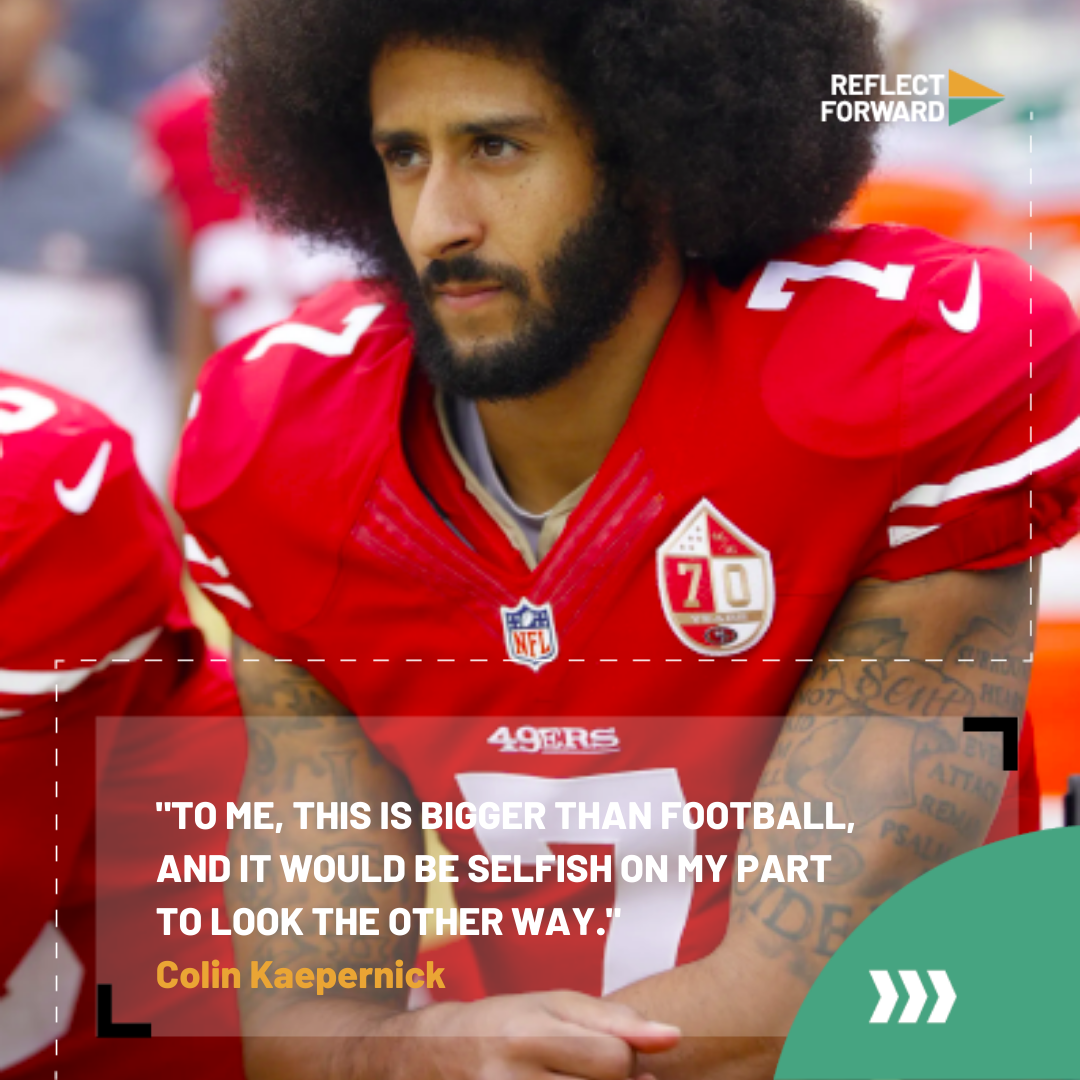The Origin & Meaning of Taking A Knee
The Origin & Meaning of Taking a Knee
Colin Kaepernick is a civil rights activist and former NFL player whose bravery inspired awareness and activism around the world in speaking out against racial injustice.
Back in 2016 Kaepernick first sat, then began kneeling during the national anthem before games to protest racial injustice and police treatment of black people. Kaepernick said that he could not stand up to show pride in a flag for a country that oppresses black people and people of color.
“To me, this is bigger than football, and it would be selfish on my part to look the other way.”
— Colin Kaepernick
Teammates joined Kaepernick in kneeling through the 2016 season and by 2017 the anti-racist statement had exploded into a national debate. This was stoked by Donald Trump who called for club owners to get any “son of a bitch” who didn’t stand for the anthem off the field. Players skipped the anthem altogether or continued to protest, with some joining arms on the sideline.
While Kaepernick’s protest would cost him his football career - by 2017, he was out of the league - he has become an influential civil rights leader. His social justice activism now spans education, legal defense, publishing and philanthropy.
Kaepernick’s brave anti-racist act has become a prominent symbol in sport and protest. It has stoked passion and awareness in the public consciousness and become a powerful mobilising force.
We now see athletes taking his lead and kneeling together before games around the world to protest racial inequality. Fans are watching, listening and engaging in ways never seen before - protesting, donating to political causes, voting, and boycotting. Beyond sport, taking the knee has become a powerful act in the Black Lives Matter protests including those following the murder of George Floyd.
And Kaepernick’s courage is where this global act of fighting racism all began.

